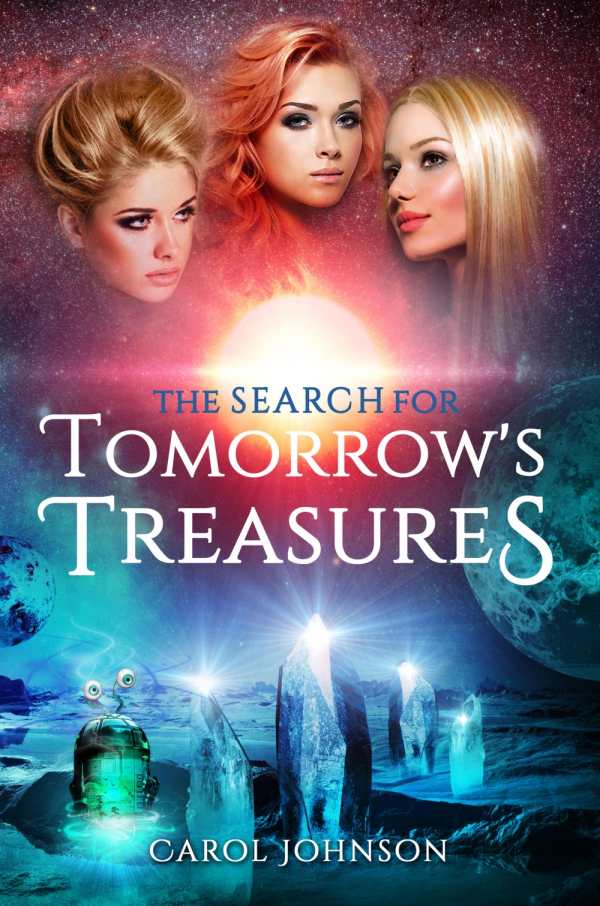The Search for Tomorrow's Treasures
The Adventures of Aries
Fans of dramatic tension and female leaders will have good reason to anticipate the next installment in this sci-fi series.
As Beth Griffin, captain of the Aries, leads her crew into space, their journey becomes one of self-discovery as much as exploration. Carol Johnson Hackman’s The Search for Tomorrow’s Treasures is a dramatic space opera that features several strong female leads who forge their own destinies despite tremendous odds against them.
The story follows the Aires, a survey ship from Earth whose crew includes both humans and AIs. Upon finding several planets of interest, the explorers split into three groups to investigate. The teams find dangers and rewards as they search each assigned world.
Intimate-partner violence is a predominant theme throughout the three subplots. The point of this abuse, which is both physical and mental in nature, is often to force women to bear children against their wishes. In this sense, the book can be read as a statement in support of women’s reproductive rights. As they resist these violations of their free will, the female leaders of each expedition also manifest powerful hidden talents, symbolizing not only their ability to grow through adversity but also the potential for further development in later books.
Initially, the plot’s time line skips to the distant past to provide exposition, involving some characters who are never seen again. This initial continuity issue quickly clears up, and the plot flows smoothly. The relatively independent arcs of each story line rise and fall in sync with one another, giving the book a good sense of overall unity. The majority of the action focuses on the drama between various crew members as they deal with their relationship troubles and fall into and out of the psychic influences of the aliens they encounter.
The three female commanders have dynamic character arcs, beginning as barely competent leaders and ultimately triumphing over hostile forces. Supporting characters possess unique personalities and backgrounds that help to flesh them out as individuals. The Quanta, independent but friendly AIs, are particularly interesting in that they are far more immediately powerful than humans, yet they recognize their own lack of creativity. Indeed, though the Quanta make the plot’s resolution possible, humans are the ones who identify and solve many problems related to interpersonal conflict and politics.
Overall, the book is well-written, though dialogue and character actions tend to lean heavily on adverbs; for example, “Rose revealed carelessly”, “Jason replied evasively”, “Rose asked hopefully”. Despite this stylistic peculiarity, engaging dramatic scenes ensure that the story is never dull.
Many great science fiction series, from Firefly to Star Trek, focus on relationships within the context of space exploration or travel. The Search for Tomorrow’s Treasures is an enjoyable continuation of this tradition.
Reviewed by
Anna Call
Disclosure: This article is not an endorsement, but a review. The publisher of this book provided free copies of the book and paid a small fee to have their book reviewed by a professional reviewer. Foreword Reviews and Clarion Reviews make no guarantee that the publisher will receive a positive review. Foreword Magazine, Inc. is disclosing this in accordance with the Federal Trade Commission’s 16 CFR, Part 255.

